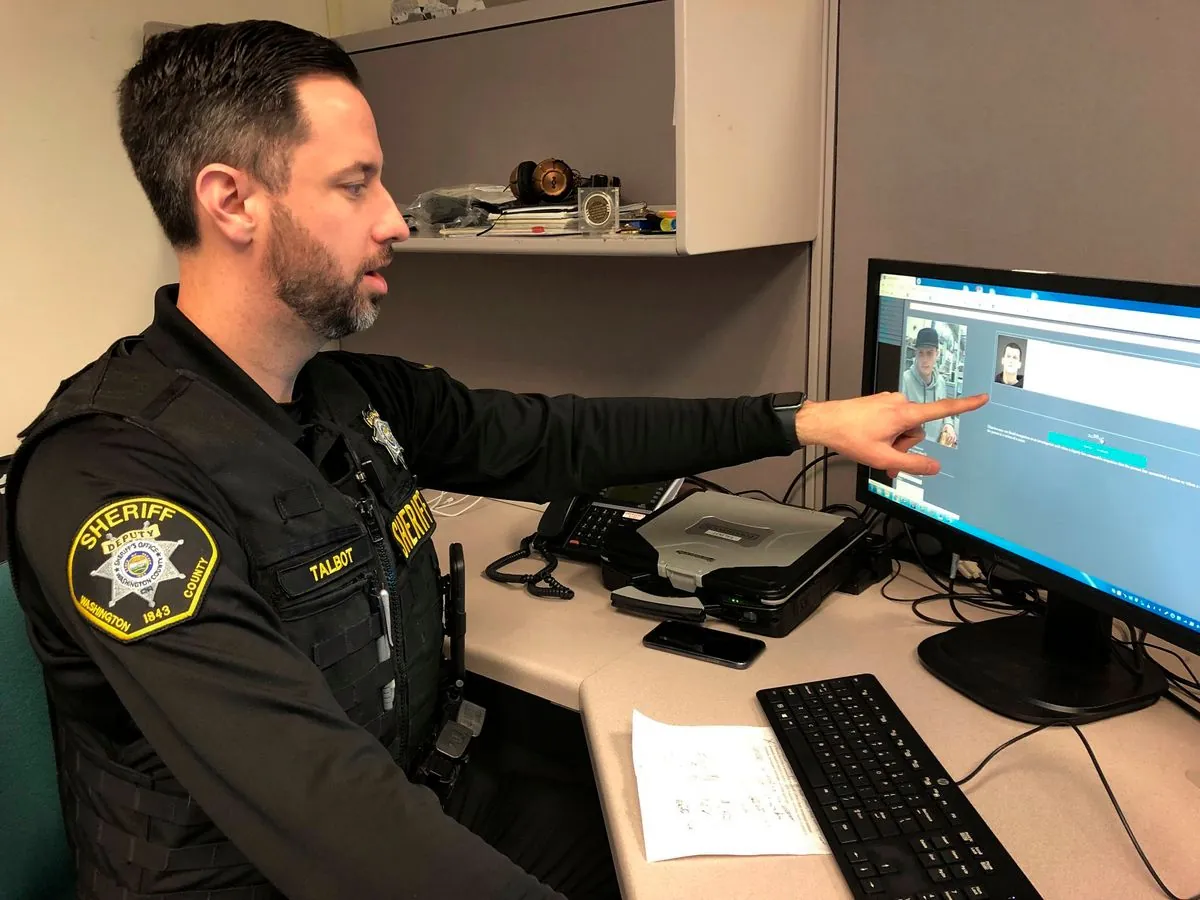In recent years, the use of facial recognition technology in law enforcement has become increasingly prevalent across the United States. An investigation by The Washington Post has uncovered that hundreds of Americans have been arrested after being identified by this controversial software, yet many remain unaware of its role in their cases.
Police departments in 15 states provided records documenting the use of facial recognition in over 1,000 criminal investigations during the past four years. Alarmingly, authorities routinely failed to inform defendants about the software's use, denying them the opportunity to contest the results of a technology known for its potential inaccuracies, especially when identifying people of color.
The lack of disclosure is particularly concerning given the technology's history of misidentification. At least seven innocent Americans, six of whom were Black, have been wrongfully arrested due to errors in facial recognition software. This statistic underscores the need for greater scrutiny and transparency in its application.
Quran Reid's case exemplifies the potential consequences of misidentification. In 2022, Reid spent six days in jail for allegedly using stolen credit cards in Louisiana, a state he claims never to have visited. The affidavit leading to his arrest mentioned a "credible source" but omitted the use of facial recognition software. Reid's case was eventually dismissed, but not before he experienced the trauma of wrongful incarceration.
The reliability of facial recognition technology has been successfully challenged in several recent court cases. In June 2023, a New Jersey appeals panel ruled that defendants have a right to information regarding the use of facial recognition technology in their cases. This decision highlights the growing legal scrutiny surrounding the technology's use in criminal proceedings.
"Use of AI by law enforcement that leads to criminal charges should be disclosed to safeguard constitutional rights and ensure a fair trial."
The global facial recognition market is expected to reach $12.67 billion by 2028, indicating the technology's growing prevalence. However, its accuracy can vary greatly depending on factors like lighting and angle, with some systems showing higher error rates for women and people of color.
In Miami, the police department has run 2,500 facial recognition searches since 2020, leading to at least 186 arrests and more than 50 convictions. However, only about 7% of arrestees were informed about the technology's use in their cases. This lack of transparency raises serious concerns about due process and the ability of defendants to challenge evidence against them.
The use of facial recognition technology extends beyond law enforcement. It is used in various applications, from unlocking smartphones to preventing shoplifting in retail stores. The U.S. Customs and Border Protection uses facial recognition at over 200 airports, highlighting its widespread adoption.
As the technology continues to evolve, so do the methods to counteract it. Some artists and activists have developed techniques to confuse or trick facial recognition systems, reflecting growing concerns about privacy and surveillance.
The debate surrounding facial recognition in law enforcement is part of a larger conversation about the balance between public safety and individual rights. While the technology offers potential benefits for crime-solving, its use without proper disclosure and safeguards raises significant ethical and legal questions.
As facial recognition technology becomes more prevalent, there is a growing call for clearer regulations and transparency. The European Union is considering a ban on facial recognition in public spaces, while some U.S. cities, like San Francisco, have already banned its use by police.
The future of facial recognition in law enforcement remains uncertain, but one thing is clear: the need for open dialogue, robust safeguards, and informed consent is more critical than ever. As we navigate this complex landscape, balancing technological advancement with individual rights will be crucial in shaping a fair and just legal system.
